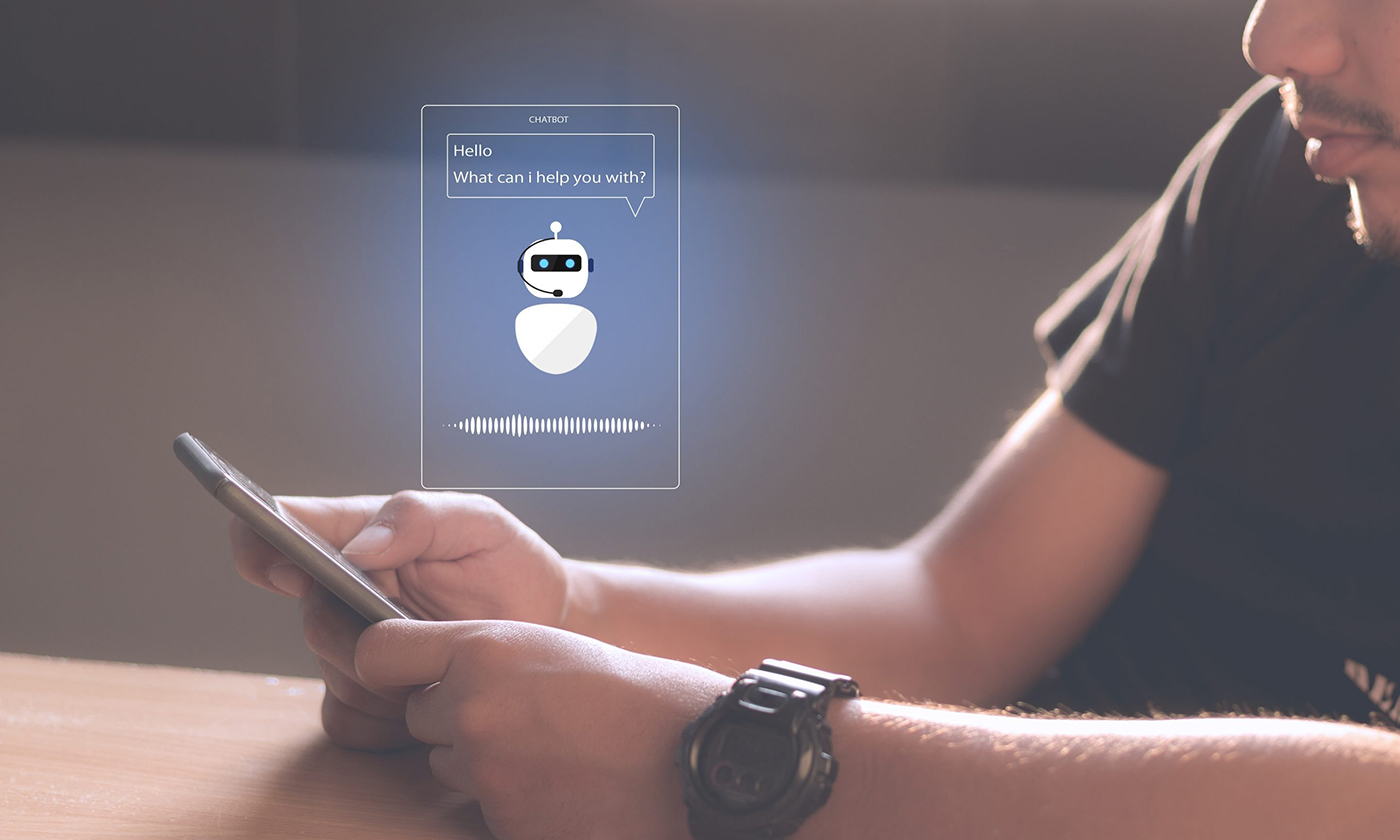
一个周日下午,我点开了我们公司网站上聊天机器人的聊天记录,它们平时负责“接待”访客,回答问题。
其中一份聊天记录引起了我的注意,让我笑出了声。
Juji(聊天机器人):在你的工作或个人生活中,最大的痛点或挑战是什么?
用户A:你是男生吗?
Juji:我不是真人。
用户A:我的工作是在确保不被吃掉的情况下驯服老虎。
Juji:明白了。如果哪天我变得更强大了,我很愿意帮助你。
笑完之后,我突然意识到,优秀的人工智能聊天机器人或许可以给我们人类,尤其是领导者带来一些重要的经验教训。顺着这个想法,我进一步观察到优秀的人工智能聊天机器人,尤其是那些拥有认知智慧(人类软技能)的机器人,能够教领导者学会共情及其他方面的技能。
谦卑
由于天生的不完美,优秀的人工智能聊天机器人在设计时通常会被赋予更谦卑的语气:它们会为自己的错误道歉,承认缺乏某些知识等。在我们人类的世界里,每个人都是独一无二的,但没有人是完美的。
如果领导者可以放下一点自负,带上一点谦虚,承认自己的缺点或错误,就将有助于领导者为团队成员树立榜样,打造更团结、更具同理心、更和谐的职场文化。
透明度
我们一直提倡不要把人工智能伪装成真实的人类。这样做只会损害你的品牌,让客户感觉受到了欺骗,因为人类很快就能够发现人工智能的缺陷,意识到它根本不是真人。此外,科学研究表明,人工智能的自我暴露有助于提升对话的真实性。因此,优秀的人工智能聊天机器人的训练目标是对用户保持透明,总是坦陈自己的能力和局限性。
与之类似,如果领导者总是诚实地面对自己的能力和局限,与团队诚实地分享意见和感受,就将有助于与团队建立可靠真实的关系。这样员工们会觉得做真实的自己是安全的、有保障的、舒适的,可以随之培养出更紧密、更包容的工作文化。
积极倾听
人们更愿意向机器敞开心扉(当需要透露敏感信息或自身想法时),因为他们觉得机器不会评判他们。
认知型人工智能聊天机器人更进一步,积极倾听用户的心声,比如说,重复用户说过的话,充满同理心地认可用户的感受,让用户感觉得到了聆听。更重要的是,它们从不对用户表达的内容进行评判。同样的,如果组织的领导者能够学会积极倾听,摒弃自我意识和评判他人的冲动,把注意力放在员工而不是自己的想法上,就可以更好地与团队拉近关系,更好地理解并领导团队。
读出言外之意
与心理学家一样,认知型人工智能聊天机器人的另一项重要技能是通过动态分析用户的对话文本,自动推断用户未明确表达的需求、兴趣点和个性特征,从而读出言外之意。
2000多年前,古罗马的政治家西塞罗曾经说过:“如果你想说服我,你就必须思考我的思想,感受我的感情,说出我的语言。”得力的领导者应该学会如何从与员工的对话中读出言外之意,与他们的感受和想法共情,利用这些见解为他们在职场上提供最大帮助。
现在的聊天机器人拥有先进的人类软技能,例如积极倾听和理解言外之意,按照全球各地领导人的说法,这也是最重要的领导技能。
随着人类不断发展人工智能,认知型人工智能也可以作为人类自身行为的一面镜子,帮助人类建立更高效能、更包容的关系。如果领导者拥有这类软技能,在领导团队时就更具同理心、能够积极倾听、提升透明度,将打造一个更快乐、更高效、更包容的职场。(财富中文网)
米歇尔·周,博士,是Juji公司(Juji, Inc.)的联合创始人及首席执行官,该公司主要生产具有认知能力的易用型人工智能助手,她还是美国计算机学会交互式智能系统学报(ACM Transactions on Interactive Intelligent Systems)的主编。在创立Juji之前,米歇尔在IBM 公司的Research/Watson负责前沿技术的研发,包括IBM RealHunter和Watson Personality Insights。米歇尔毕业于哥伦比亚大学(Columbia University),获计算机科学博士学位,还是美国计算机学会杰出科学家(ACM Distinguished Scientist)。
Fortune.com上的评论文章仅代表作者个人观点,不代表《财富》杂志的观点和立场。
译者:Agatha
一个周日下午,我点开了我们公司网站上聊天机器人的聊天记录,它们平时负责“接待”访客,回答问题。
其中一份聊天记录引起了我的注意,让我笑出了声。
Juji(聊天机器人):在你的工作或个人生活中,最大的痛点或挑战是什么?
用户A:你是男生吗?
Juji:我不是真人。
用户A:我的工作是在确保不被吃掉的情况下驯服老虎。
Juji:明白了。如果哪天我变得更强大了,我很愿意帮助你。
笑完之后,我突然意识到,优秀的人工智能聊天机器人或许可以给我们人类,尤其是领导者带来一些重要的经验教训。顺着这个想法,我进一步观察到优秀的人工智能聊天机器人,尤其是那些拥有认知智慧(人类软技能)的机器人,能够教领导者学会共情及其他方面的技能。
谦卑
由于天生的不完美,优秀的人工智能聊天机器人在设计时通常会被赋予更谦卑的语气:它们会为自己的错误道歉,承认缺乏某些知识等。在我们人类的世界里,每个人都是独一无二的,但没有人是完美的。
如果领导者可以放下一点自负,带上一点谦虚,承认自己的缺点或错误,就将有助于领导者为团队成员树立榜样,打造更团结、更具同理心、更和谐的职场文化。
透明度
我们一直提倡不要把人工智能伪装成真实的人类。这样做只会损害你的品牌,让客户感觉受到了欺骗,因为人类很快就能够发现人工智能的缺陷,意识到它根本不是真人。此外,科学研究表明,人工智能的自我暴露有助于提升对话的真实性。因此,优秀的人工智能聊天机器人的训练目标是对用户保持透明,总是坦陈自己的能力和局限性。
与之类似,如果领导者总是诚实地面对自己的能力和局限,与团队诚实地分享意见和感受,就将有助于与团队建立可靠真实的关系。这样员工们会觉得做真实的自己是安全的、有保障的、舒适的,可以随之培养出更紧密、更包容的工作文化。
积极倾听
人们更愿意向机器敞开心扉(当需要透露敏感信息或自身想法时),因为他们觉得机器不会评判他们。
认知型人工智能聊天机器人更进一步,积极倾听用户的心声,比如说,重复用户说过的话,充满同理心地认可用户的感受,让用户感觉得到了聆听。更重要的是,它们从不对用户表达的内容进行评判。同样的,如果组织的领导者能够学会积极倾听,摒弃自我意识和评判他人的冲动,把注意力放在员工而不是自己的想法上,就可以更好地与团队拉近关系,更好地理解并领导团队。
读出言外之意
与心理学家一样,认知型人工智能聊天机器人的另一项重要技能是通过动态分析用户的对话文本,自动推断用户未明确表达的需求、兴趣点和个性特征,从而读出言外之意。
2000多年前,古罗马的政治家西塞罗曾经说过:“如果你想说服我,你就必须思考我的思想,感受我的感情,说出我的语言。”得力的领导者应该学会如何从与员工的对话中读出言外之意,与他们的感受和想法共情,利用这些见解为他们在职场上提供最大帮助。
现在的聊天机器人拥有先进的人类软技能,例如积极倾听和理解言外之意,按照全球各地领导人的说法,这也是最重要的领导技能。
随着人类不断发展人工智能,认知型人工智能也可以作为人类自身行为的一面镜子,帮助人类建立更高效能、更包容的关系。如果领导者拥有这类软技能,在领导团队时就更具同理心、能够积极倾听、提升透明度,将打造一个更快乐、更高效、更包容的职场。(财富中文网)
米歇尔·周,博士,是Juji公司(Juji, Inc.)的联合创始人及首席执行官,该公司主要生产具有认知能力的易用型人工智能助手,她还是美国计算机学会交互式智能系统学报(ACM Transactions on Interactive Intelligent Systems)的主编。在创立Juji之前,米歇尔在IBM 公司的Research/Watson负责前沿技术的研发,包括IBM RealHunter和Watson Personality Insights。米歇尔毕业于哥伦比亚大学(Columbia University),获计算机科学博士学位,还是美国计算机学会杰出科学家(ACM Distinguished Scientist)。
Fortune.com上的评论文章仅代表作者个人观点,不代表《财富》杂志的观点和立场。
译者:Agatha
On a Sunday afternoon, I was going through chat transcripts produced by our chatbot, which sits on our company’s website, greeting visitors and answering their questions.
One transcript caught my eye and made me laugh.
Juji (the chatbot): What is the top pain point or challenge in your line of work or personal life?
User A: Are you a boy?
Juji: I’m not a person
User A: My job is to tame tigers without being eaten.
Juji: Got it. Once I become more powerful, I’d love to help you out.
After the laughs wore off, I suddenly realized that good A.I. chatbots could perhaps teach us humans, especially leaders, important lessons. Exploring this thought further, I observed five things that good A.I. chatbots, especially those with cognitive intelligence (human soft skills) can teach leaders about empathy and more.
Humility
Due to their imperfections, good A.I. chatbots are often designed with a humble tone: They apologize for their mistakes or admit a lack of certain knowledge. In our human world, everyone is unique, but no one is perfect.
If leaders can shed a little ego and carry a sense of humility, acknowledging their shortcomings or mistakes, it would help set examples for team members, promoting a more collaborative, empathetic, and harmonious workplace culture.
Transparency
We always advocate not to disguise A.I. as a real person. Doing so will only hurt your brand and make your audience feel cheated because humans will quickly discover the flaws in A.I. and realize it is not human after all. Moreover, scientific research shows A.I. self-disclosures promote authentic conversations. Thus, good AI chatbots are trained to be transparent with users and always disclose their capabilities and limitations.
Analogously, if leaders are always truthful about their abilities and limitations, and share honest opinions and feelings with their teams, it will help build trustworthy and authentic work relationships. As a result, employees will feel safe, secure, and comfortable being their genuine selves and foster a more connected, inclusive work culture.
Active listening
People are more willing to open themselves up to machines (when it comes to disclosing sensitive information or ideas generation) because they feel that machines do not judge them.
Cognitive A.I. chatbots take a step further by actively listening to their users, for example, repeating what their users have said and acknowledging users’ feelings empathetically to make users feel heard. More importantly, cognitive A.I. chatbots never place judgments on what users have expressed. Likewise, if organization leaders can practice active listening, remove egos and judgments from the room, and pay attention to their employees instead of their own thoughts, they could better connect with, understand, and lead their teams.
Reading between the lines
Like a psychologist, another important skill of cognitive A.I. chatbots is to read between the lines by dynamically analyzing a user’s conversation text and automatically inferring the user’s unspoken needs, implicit interests, and personality traits.
Cicero said more than 2000 years ago, “If you wish to persuade me, you must think my thoughts, feel my feelings, and speak my words.” Effective leaders should learn how to read between the lines from conversations with employees, empathizing with their feelings and thoughts and using those insights to best help them in the workplace.
Chatbots are now powered with advanced human soft skills, such as active listening and reading between the lines, which are also the most important leadership competencies, according to leaders around the world.
As humans continuously advance A.I. technologies, cognitive A.I. could also serve as a mirror for our own behavior–and help build more productive and inclusive relationships among humans. Leaders who embrace similar soft skills and lead with empathy, active listening, and transparency will build a much happier, more productive, and more inclusive workplace.
Michelle Zhou, Ph.D. is co-founder and CEO of Juji, Inc., the maker of accessible, cognitive artificial intelligence (A.I). assistants, and editor-in-chief for ACM Transactions on Interactive Intelligent Systems (TiiS). Prior to starting Juji, Michelle led and managed the research and development of cutting-edge technologies at IBM Research/Watson, including IBM RealHunter and Watson Personality Insights. Michelle received a Ph.D. in Computer Science from Columbia University and is an ACM Distinguished Scientist.
The opinions expressed in Fortune.com commentary pieces are solely the views of their authors and do not reflect the opinions and beliefs of Fortune.






